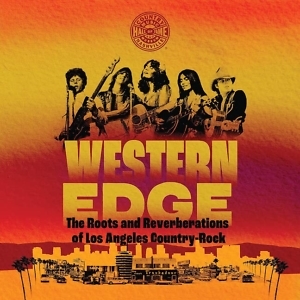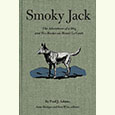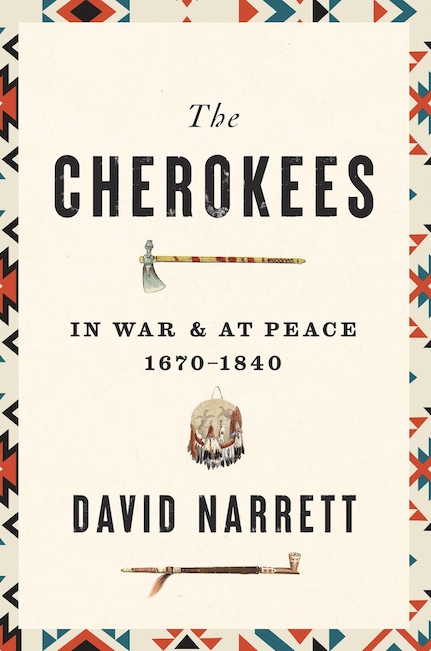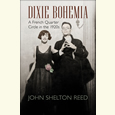L.A. Roots
Western Edge explores country-rock from the Byrds to the Blasters and beyond
It’s fitting that Western Edge: The Roots and Reverberations of Los Angeles Country-Rock, companion book to a major, multi-year exhibition at Nashville’s Country Music Hall of Fame and Museum, is album-shaped. Just looking at the cover puts a song in your head.
 Maybe it’s something off the Byrds’ 1968 landmark album Sweetheart of the Rodeo, the so-called “Big Bang for country-rock,” as the book’s lead essayist, longtime L.A. music journalist Randy Lewis, puts it.
Maybe it’s something off the Byrds’ 1968 landmark album Sweetheart of the Rodeo, the so-called “Big Bang for country-rock,” as the book’s lead essayist, longtime L.A. music journalist Randy Lewis, puts it.
Maybe it’s something by Dwight Yoakam or the Blasters, from country-rock’s second (and highly revved) wave of the 1980s, remembered by the Blasters’ Dave Alvin in his essay as “a wild, intense, and strange time” whose participants have gone on to make “some of the best music of the past forty years.”
Or maybe it’s one of your faves from Linda Ronstadt, whose foreword strikes just the right note by tracing her own musical roots:
… I discovered Hank Williams when I was five. It happened on the regular trips my family made to Mexico. A high point of those drives was stopping to eat at a place called the Halfway Station between Tucson and the Mexican border. They had fantastic burritos and a killer jukebox.
So Ronstadt sets the table, drops a quarter in the jukebox, and we’re off. We’re exploring music with a distinct center (Los Angeles, and clubs such as the Ash Grove and the Troubadour) but with a sense of place that couldn’t be pinned down. This is music with roots deep and vast, ever twisting and twining.
Western Edge, created by the staff of the Country Music Hall of Fame and Museum, captures it all over the course of 132 pages. It’s part coffee table book, part liner notes for the records playing in your head, and part scrapbook of a time that was as cool to look at as to listen to — from the “cosmic cowboy couture” of the Flying Burrito Brothers’ Nudie suits to Alvin’s stupendous pompadour.
The music is the thing, of course, and the book provides a lively history, concise and yet freewheeling. Lewis traces the musical education of the pioneers of country-rock, raised on first-generation rock ‘n’ roll by the likes of Elvis, Chuck Berry, and the Everly Brothers, then having their heads turned by the folk revival centered around Bob Dylan and New York’s Greenwich Village. But, as Lewis writes, “a tight-knit community raised on rock but also well versed in folk, bluegrass, and country music was simultaneously taking root in Southern California.”
We’re introduced to some of those early crucial acts, including the Three Little Country Boys (the White brothers Clarence, Roland, and Eric) and the Dillards (aka family band the Darlings as they were known on The Andy Griffith Show).
And we catch up with “a hotshot young mandolinist named Chris Hillman,” dubbed “the linchpin” of country-rock. You may know him best as co-founder of both the Byrds and the Flying Burrito Brothers. But the late Tom Petty is quoted, calling Hillman “the man who invented country-rock,” adding: “Every time the Eagles board their private jet, Chris at least paid for the fuel.”
That’s how it goes in music sometimes. Art becomes commerce. Innovators give way to operators. So country-rock went into the tumbler and came out polished — a la the wildly successful Eagles.
But that didn’t kill country-rock. It just instigated a new wave in the 80s, a back-to-basics movement that drew on those decades-old roots while also embracing the ethos of punk. So country-rock now included Kentucky-born Yoakam with his hopped-up honky tonk; East L.A. heroes Los Lobos with their stew of Mexican music, blues, R&B, and country; and even the throwback country of the Knitters, offshoot of a punk band (X) that was heavily influenced by rockabilly.
That’s the glory of this musical movement. L.A. may be its capital, but country-rock gets around. It knows the hills and hollers of Appalachia and the swamps and street corners of the Deep South. It’s right at home in Greenwich Village or Music City. And it can show you where to get a fantastic burrito on the drive from Tucson to Mexico.

David Wesley Williams is the author of the novels Everybody Knows (JackLeg Press, January 2023) and Long Gone Daddies (2013). His short fiction has appeared in Oxford American, Kenyon Review Online, and in Akashic Books’ Memphis Noir. He lives in Memphis.


